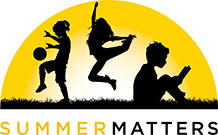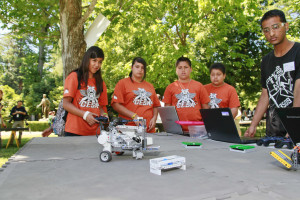Summer school is an outdated term that, for many, brings to mind remedial programs where bored students perform mundane tasks. It is critical that we rethink this concept, as we know that summer down time can put a significant dent in student learning progress.
Without high-quality, integrated and engaging summer enrichment opportunities, children can lose the reading and math skills they learned during the school year.
This loss is especially true of students who are socio- economically disadvantaged or are learning English as a second language. Their learning loss can be dramatic. These and other children can also gain unhealthy weight from too much time indoors, too little physical activity and an overabundance of summer junk food.
This disparity is made worse by the fact that summer learning opportunities already exist for children whose parents can afford private camps. Research shows that low-income children are typically three grade equivalents behind their more affluent peers in reading by the end of fifth grade, according to the National Summer Learning Association. Summer reading loss is a major contributor to this trend, but it’s one that our community can correct.
Across California, communities are addressing this challenge with innovative summer engagement programs and partnership activities that give children the chance to learn, grow and build skills all summer long.
Here in Sonoma County, we also offer children many summer activities, but our efforts are not necessarily focused on the important issue of summer learning loss.
Over the next year, I propose that the collective community — school districts, county agencies, parents and nonprofits — work to align our public and private resources to address the growing academic inequity we are seeing in our community.
But we should not only look to the past for what we want to do in the future.
I propose that we retool the old summer school model into summer enrichment camps that focus on 21st century skills. These summer programs would employ teachers who have expertise in applying instructional strategies that foster critical thinking, collaboration, creativity and communication skills in our students. They would work in partnership with nonprofit and other youth-serving organizations, public libraries and others to provide full-day learning and enrichment camps.
Those of us in education need to take the lead in this effort. By bringing our expertise to the table, we can integrate these programs with 21st century teaching practices and learning activities that focus on science, technology, engineering, arts and mathematics — a combination known as STEAM. These are skills employers are looking for in their future employees.
Parents also have a critical role to play in advocating that such programs be offered through their school districts. They can do so at community meetings to draft district local control accountability plans, which outline how districts spend state funds. Questions to ask include:
“How are you addressing summer learning loss?”
“Have you aligned summer activities with those offered by our local libraries and parks and recreation departments?”
“How can we provide students an all-day, engaging summer experience?”
Through project-based learning and other strategies, expanded learning programs can help enhance the critical thinking, problem-solving, and collaboration skills that are central to the Common Core curriculum. What’s more, these summer programs can also be staffed by teacher candidates and fellows, providing on-the-job training for our next generation of teachers.
Together, our community can rethink summer, creating opportunities for all children to grow and improve.
Steven D. Herrington is Sonoma County’s superintendent of schools.



